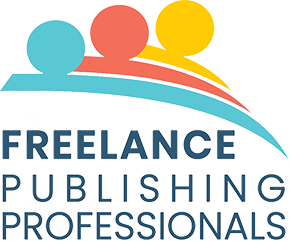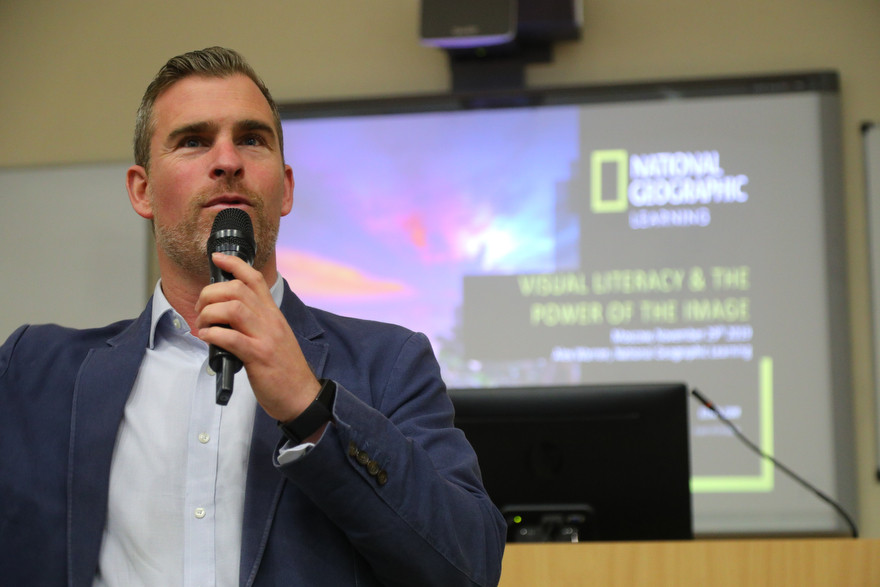CALENDAR OF 2025 CPD LIVE EVENTS
CPD LIVE WEBINAR
The Publishing landscape: Meet Haremi
Date/Time
Tuesday 18 March 2025, 2 to 3pm (UK time)
REGISTRATION: Subscribed members (free)
This event is free for members of the Freelance Publishing Professionals directory – both freelancers with a current directory membership and all employees of publishing organisations with an active directory subscription. Not sure if your company has an active subscription? Contact us to find out.
Subscribed members – click here to register for free.
REGISTRATION: non-members
If you aren't currently a directory member, you can still attend by purchasing a non-member's ticket for £20. Pay here first, then register here.
Note: All registrations will be manually approved and confirmed by email; confirmation emails will be sent directly from Zoom.
Presenters
James Voûte

James is Haremi's Business Development Director. He joined Haremi’s leadership team in 2021 and is responsible for sales and marketing initiatives to drive business growth, as well as managing key client relationships and acting as an escalation point for project queries.
Prior to joining Haremi, James spent 14 years in sales, marketing and editorial roles at McGraw Hill Education, one of the world’s largest STEM publishers. He has also worked in leadership positions at LEGO and Hasbro. He is a member of the Corporation Board of Governors at Activate Learning, one of the UK’s leading further education college groups.
Sarah Kauffman

Sarah is an Editorial Manager at Haremi. She joined the company in 2015, working as an Editorial Assistant and Editor before her current role. Sarah manages the editorial workflow for both print and digital projects, liaising with freelancers and internal team members to ensure tasks are completed to agreed schedules and maintaining editorial quality.
Sarah's background is in MFL, having achieved a first class degree in French and German from the University of Nottingham. After completing a TEFL module, she spent a year abroad teaching English in primary schools, as well as a primary to secondary transition course in beginners' German back in the UK.
Katie Finn
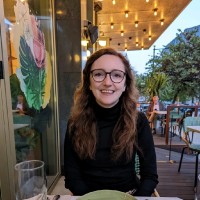
Katie is an Editorial Manager at Haremi. She manages the editorial process for both print and digital projects, working with a variety of stakeholders to ensure high quality educational products are delivered to customers.
Prior to joining Haremi in 2023, Katie worked in the publishing industry for over 10 years, in various editorial roles for Elsevier, Taylor and Francis and Oxford University Press.
Summary
This is part of a series of presentations from publishers and packagers, both big and small, covering:
- Background to the organisation (when/why they started, who they’re owned by, company values, etc)
- The areas they publish for (regions, levels, any subjects other than ELT, their specialisms)
- Their organisation (offices around the world, number of people on staff, internal structure)
- How they work with freelancers (is there an onboarding process? do they have 'approved suppliers'? etc)
- Looking forward, what kind of freelance work are they looking to outsource?
- Predictions of trends for the next 12 months
_____________________________________________________________________
CPD LIVE WEBINAR
Helping teams with neurodiverse freelancers to thrive
Presenter
Claire Hart
Date/Time
Wednesday 21 May 2025, 2 to 3pm (UK time)
Summary
Neurodiverse people are more likely than their neurotypical counterparts to be self-employed, because working in this way often suits neurodiverse people better than in-house employment. However, self-employment also presents many challenges for those who live with autism, ADHD or dyslexia, and they often struggle to reach their full potential as a result.
In this session we'll look at some tactics that neurodiverse freelancers can use and some mindset changes they can make to help them thrive. We'll also look at how neurotypical fellow freelancers or in-house partners can play their part in helping their neurodiverse colleagues to succeed. We'll start by identifying the signs that a colleague may be neurodiverse and how to react appropriately when a colleague discloses their neurodiversity. We will then look at how neurotypical colleagues can build on this awareness by making simple and painless modifications in working practices, which are likely to be changes that will benefit the whole team regardless of their status.
About Claire
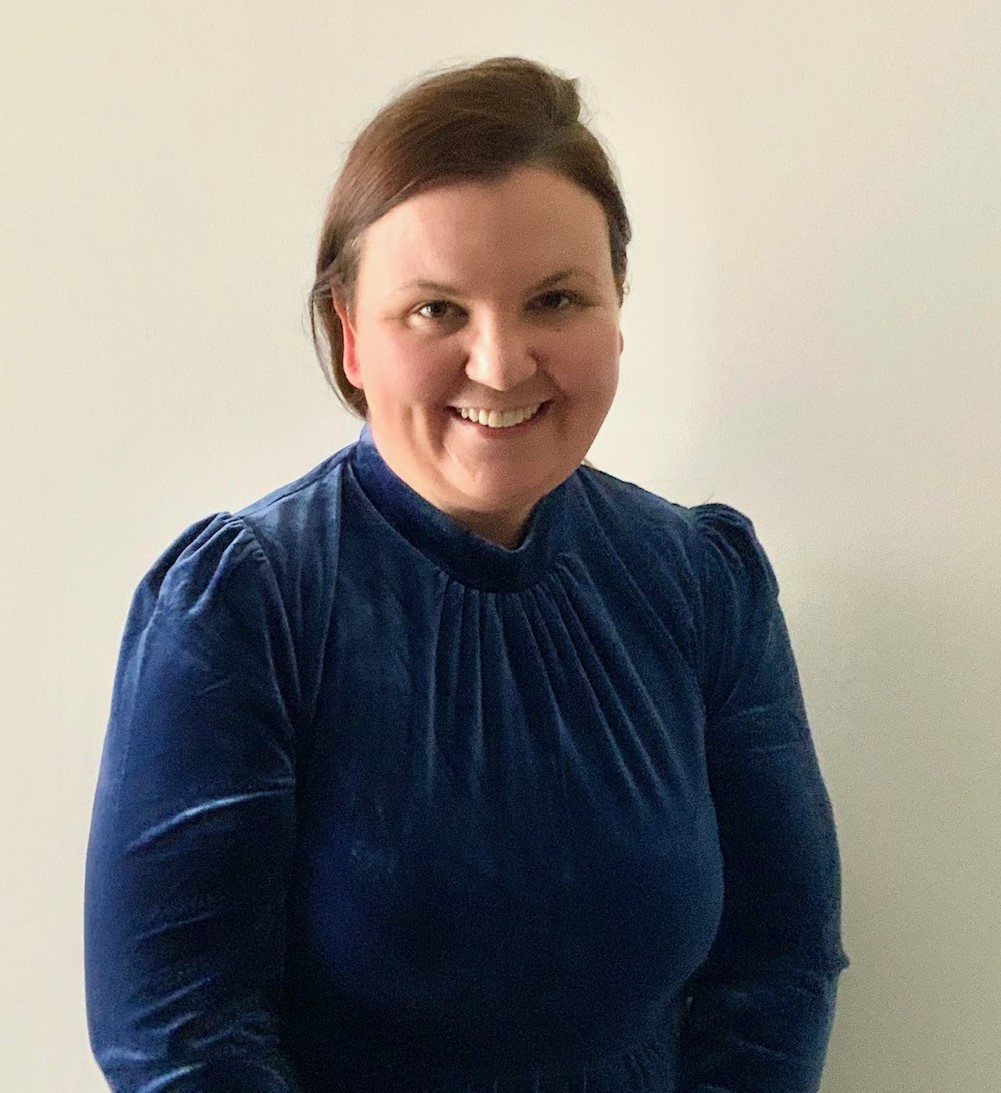
Claire Hart has been working in English Language Teaching for 20 years and she is a freelance editorial project manager, content editor and author. Over recent years, she has been working to promote awareness and understanding of neurodiversity in order to help educators develop inclusive practices which benefit everyone. Claire's knowledge of neurodiversity comes from her first-hand experience as someone who has autism and ADHD and from her academic research.
_____________________________________________________________________
CPD LIVE WEBINAR
The Publishing landscape: Meet Hachette Learning
Presenters
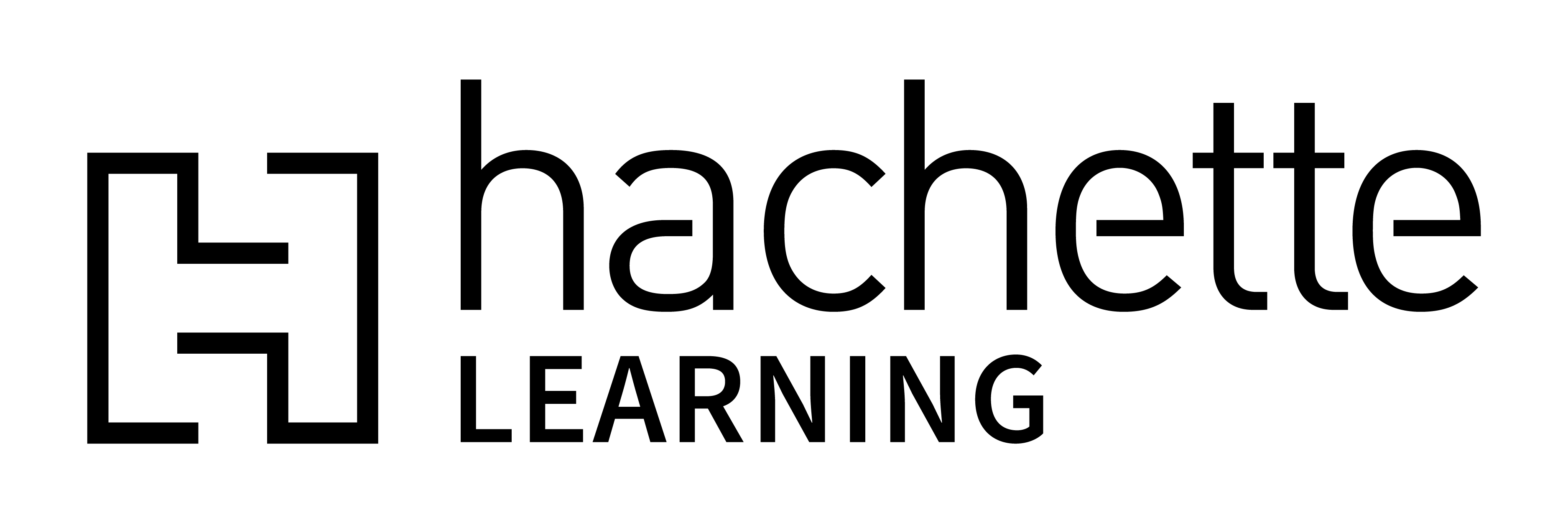
Date/Time
Tuesday 15 July 2025, 2 to 3pm (UK time)
Summary
This is part of a series of presentations from publishers and packagers, both big and small, covering:
- Background to the organisation (when/why they started, who they’re owned by, company values, etc)
- The areas they publish for (regions, levels, any subjects other than ELT, their specialisms)
- Their organisation (offices around the world, number of people on staff, internal structure)
- How they work with freelancers (is there an onboarding process? do they have 'approved suppliers'? etc)
- Looking forward, what kind of freelance work are they looking to outsource?
- Predictions of trends for the next 12 months
_____________________________________________________________________
CPD LIVE WEBINAR
AI and copyright updates
Presenter
Clare Painter
Date/Time
Thursday 18 September 2025, 2 to 3pm (UK time)
'FREELANCE LIFE' LIVE WEBINAR
Drowning in paperwork? Struggling to find important documents? Join organisation expert Sammy Ryan from Strictly Organised to discover simple systems that will transform your freelance business and life from chaotic to controlled, giving you more time to focus on paid work and less time wrestling with admin.
This 'freelance life' session will look at why our admin overwhelm is not our fault, how technology can be used as a useful tool and how you can:
- set up systems that enable you to find important papers and information easily
- manage important business calendar dates and the processes around them
- use your creativity and skills to help new systems stick.
About Sammy Ryan
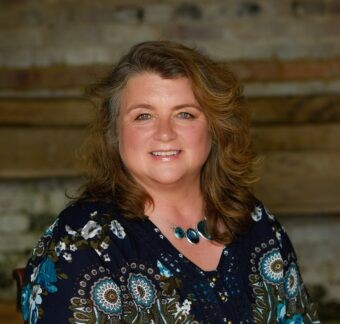
Since founding Strictly Organised in 2010, Sammy Ryan has walked into chaos and restored order across the UK – empowering people in their homes and businesses to review, reinvent and reconnect with their lives. A former Board Member of the Association of Professional Declutterers & Organisers (APDO), Sammy’s mission is to motivate and teach others how to get their admin done efficiently and effectively, so they can live a life transformed.
A powerful advocate for her clients, Sammy is at their side to keep the ball rolling in the right direction. She puts problems into context and co-creates solutions and supports her clients to create ‘just in case’ action plans for preventative steps to stay one step ahead of the unexpected. Sammy combines the discretion, good humour and understanding one would want from a trusted friend, with the expertise, wisdom and authority of an organising coach.
Generative AI: what can we expect in the year ahead?
Follow-up actions
Summary
A year ago this month Paulo did a CPD webinar for us, looking at the developments we could expect from generative AI and predicting how they might impact the ELT and Educational publishing industry. In this session, we'll be looking back over the last 12 months and reviewing how these developments have impacted educational publishing. And looking forward, a key takeaway will be to understand how AI is likely to affect our workflows and production over the next few years. We'll also explore how to:
- set up a work environment with and for AI
- use AI for content writing and editing
- develop multimedia asset creation strategies
Presenter
Paulo Dantas (Director of pedagogy and head of product at Everybody Loves Languages)

Paulo Dantas is currently the director of pedagogy and head of product at Everybody Loves Languages, an Edtech that develops language learning platforms. He is also a founding partner at Troika and has been involved in language teaching for over 20 years as a teacher, teacher educator, course designer, materials writer and coursebook editor; in the last few years, Paulo has explored ways in which technology and innovation impact teaching and learning and has developed apps, platforms and other digital products for language learning and teacher education. As an EdTech specialist, he has served as an international expert panelist for the Horizon Report Higher Education – International (2016, 2017, 2018) and its Brazilian version as well. Having attended UFPE (Social Studies), Paulo holds a post graduate certificate in teacher development from the University of Chichester and the Cambridge ESOL DELTA.
The publishing landscape: meet Westchester Publishing Services UK
Presenters
Rebecca Durose-Croft (Managing Director) and Emma Hudson (Content Director)

Summary
Westchester is one of the largest outsourced services providers (OSPs) in the ELT and Educational publishing sector with over 400 employees worldwide. In the UK their head office is in North Yorkshire. They provide editorial and project management services to publishers and institutions in many sectors, including Educational and ELT publishing and work with a lot of freelancers.
This is the second in a series of presentations from publishers and packagers, both big and small, covering:
- Background to the organisation (when/why they started, who they’re owned by, company values, etc)
- The areas they publish for (regions, levels, any subjects other than ELT, their specialisms)
- Their organisation (offices around the world, number of people on staff, internal structure)
- How they work with freelancers (is there an onboarding process? do they have 'approved suppliers'? etc)
- Looking forward, what kind of freelance work are they looking to outsource?
- Predictions of trends for 2025
Building a digital nomad life: from small steps to big journeys (Michelle Taylor)
Have you ever thought about popping your laptop and a few things in a backpack and skipping away to another location for an afternoon, a mini-break, the whole winter or even the rest of your life? In this 'freelance life' webinar, which was additional to our usual bi-monthly CPD programme, we chatted to freelancer Michelle Taylor about the benefits and practicalities of working remotely from different locations as a freelancer. Michelle, who has successfully built an exciting and liberating digital nomad lifestyle, shared her experiences and gave top tops for those considering a similar lifestyle.
Freelance Publishing Professionals members can watch a recording of the webinar here.
Read an article that Michelle wrote on 'Digital nomading'.
Read Michelle's article on 'House sitting: balancing work, travel and adventure'.

Michelle Taylor is a freelance content developer who currently lives and works as a digital nomad in the UK. Drawing on 20 years of teaching experience, Michelle specialises in creating content tailored for SEN and ESOL learners. She has collaborated on various global projects, and is proficient at adapting material for specific markets, writing according to prescribed curricula and editing and proofreading within clients' specific frameworks.
This session will explore the benefits to us and to our clients of shifting our mindset from a 'hired hand' to a strategic partner who proactively solves clients' problems. We will examine the basic principles of product management and 'Jobs To Be Done' theory and see how they can help us go beyond surface-level requests to deliver solutions that get at the underlying goals our clients are actually trying to achieve. We will discuss how this 'product' approach can add value for our clients far beyond the remit of the 'project' and lay the foundation for long-term relationships and repeat business. Practical examples will be shared from 30 years of in-house and publishing experience.
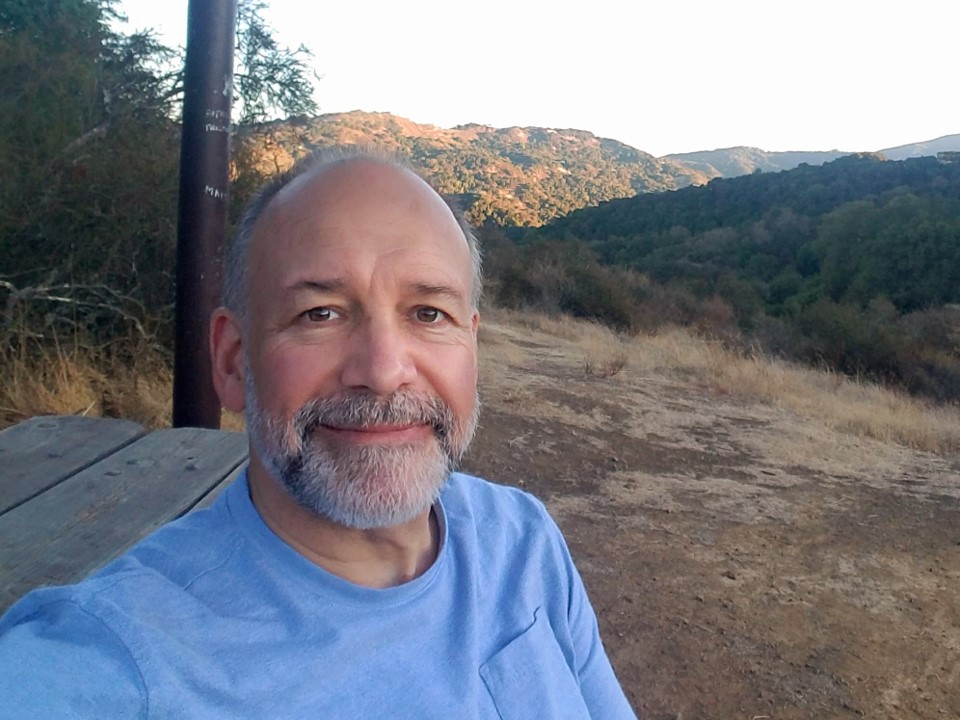
About Jeff
Jeff Krum is a freelance editor and consultant based in the New York City area. He has had a long career in ELT publishing, working for Oxford University Press and then Cambridge University Press & Assessment where he commissioned, developed, and published print and digital material for adult learners of English around the world. Jeff is passionate about mentoring and coaching others in their careers and has presented and conducted professional development and training in the US, Latin America, and Asia.
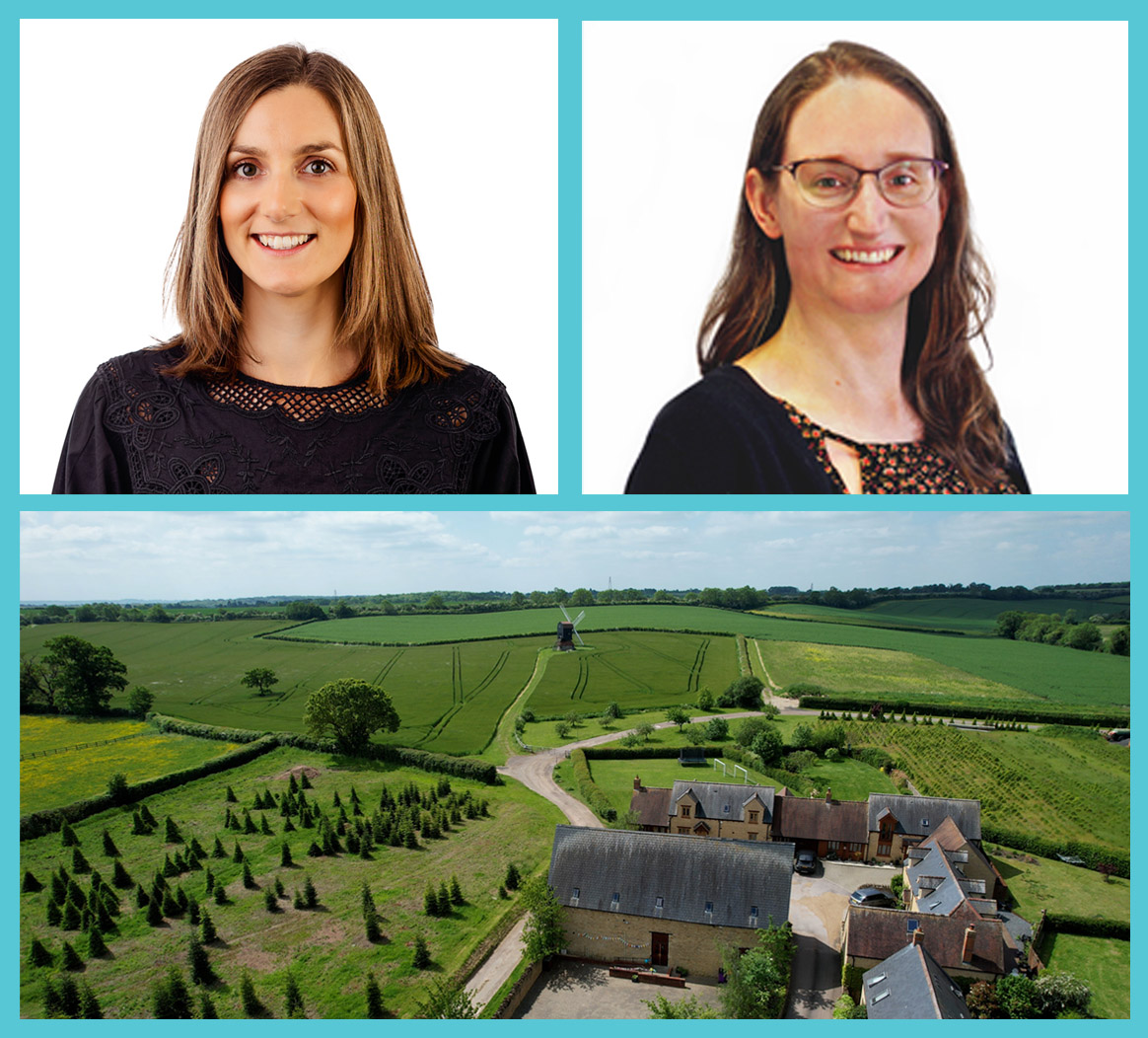
Meet the publishers and packagers! This is the first in a series of presentations from publishers and packagers, both big and small, covering:
- Background to the organisation (when/why they started, who they’re owned by, company values, etc)
- The areas they publish for (regions, levels, any subjects other than ELT, their specialisms)
- Their organisation (offices around the world, number of people on staff, internal structure)
- How they work with freelancers (is there an onboarding process? do they have 'approved suppliers'? etc)
- Looking forward, what kind of freelance work are they looking to outsource?
- Why they’re lovely to work with!
Nowadays, helping to develop and nurture global citizens is the responsibility of all educators and publishers – including those working in English language teaching – and at the heart of that is the topic of sustainability. In this session, I’ll start by briefly defining what is meant by education for sustainable development and why publishers and language schools should be incorporating it into their materials and curricula. I’ll then explore how the industry can bring sustainability into the language classroom through the content and the activities that we use.
Alex Warren
Alex is a DELTA trained teacher trainer with over 19 years’ experience of working in ELT as a teacher, teacher trainer and academic director. He has presented and run workshops on a wide range of ELT topics in over 50 countries throughout Europe, Africa, the Middle East, Asia and Latin America. Alex is currently the Senior ELT Academic Consultant for National Geographic Learning.
In this 'freelance life' webinar, which was additional to our usual bi-monthly CPD programme, our specialist speakers explained the options that are open to you as a freelancer to start to take control of your money and maximise it for your future. Both firmly believe that a more secure financial future is within reach whatever your starting point is and whatever stage of life you are at. The aim was to empower you to take control of your own financial journey.
Are you from the UK but are living abroad, or have lived abroad in the past, or for some other reason have only paid UK National Insurance contributions for only a few years in your life?
For many people it is possible to easily and cheaply top up your UK state pension to cover missing years and also to continue to contribute cheaply going forward. It really is an amazing scheme and everyone should check whether they are eligible and take action now, because the window of opportunity to make up contributions will close in 2026. Read an article that Nicola wrote on this topic.
What next steps can you take immediately to begin to manage your finances more effectively?
- Download '3 Steps to start your own financial plan', a resource sheet that Stuart has put together a sheet with tips that covers the three actions you should take as soon as possible to start your own financial plan.
- Download a practical budget sheet that Nicola has prepared. It walks you through steps to look at your finances as they are today and then take small actions that can have a big impact on your ability to save and grow your money.

Nicola Prentis (a financial educator) is a former English teacher-turned educational materials writer who, like many of us, had pretty terrible finances. But she taught herself about investing and now creates and runs courses to help non-finance-minded people manage and grow their money.
Stuart Harmer (and accredited non-independent financial advisor) has been a Wealth Manager for over 20 years. Amongst other services, he offers personalised cashflow modelling, which enables clients to effectively visualise what retirement will look like and explore how varying the different elements affects outcomes. He gives clients personalised support, guiding them through financial decisions, educating along the way and advising the best course of action.
NOTE: Freelance Publishing Professionals does not endorse any particular approach to money management or any particular advisors or educators.
In this session, we'll discuss some of the latest developments in artificial intelligence and how they might impact the ELT publishing industry. We'll also look at some practical examples of how we can use some of the tools already available to boost our productivity and make content production more cost-effective without sacrificing quality.
Using AI for:
- generating content ideas
- creating graded texts and scripts
- proofreading
- generating simple media (audio, video)
Paulo Dantas
Paulo Dantas is a managing partner at Troika and has been involved in language teaching for over 20 years as a teacher, teacher educator, course designer, materials writer and coursebook editor; in the last few years, Paulo has explored ways in which technology and innovation impact teaching and learning and has developed apps, platforms and other digital products for language learning and teacher education. As EdTech specialist, he has served as international expert panelist for the Horizon Report Higher Education – International (2016, 2017, 2018) and its Brazilian version as well. Having attended UFPE (Social Studies), Paulo holds a post graduate certificate in teacher development from the University of Chichester and the Cambridge ESOL DELTA.
Let’s find out—there are a lot of people now learning how to or even producing ELT materials that fall within what we might consider to be a step up towards inclusive materials. These can be differentiated in several ways when examining which groups or characteristics are being represented. For the Queer community, we might apply the materials to a taxonomy of forms of representational heteronormativity (Moore, 2020), which uses key characteristics to place within a five-point scale from explicit heterosexism to queer inclusion. With a specific focus on the representation of the LGBTQ+ community, in this session we’ll take a more deliberate look at what makes our representation authentic and meaningful in language learning contexts. Using two complementary approaches (usualisation and disruptive) and Moore’s taxonomy, we can devise key considerations for you to keep near when creating or editing materials with the LGBTQ+ community included.
Tyson Seburn

Tyson Seburn (MA EdTech & TESOL, University of Manchester) is an EMI/EAP lecturer at the University of Toronto and tutors for Trinity DipTESOL. His interests focus on Queer and racialised ELT experiences. He is the author of Academic Reading Circles (2015) and How to Write Inclusive Materials (2021).
Tyson has called Seoul and Toronto home and is proud daddy to his pup, Lou. He used to be a gymnast (once he did a cartwheel during the IATEFL Pecha Kucha to prove it), sometimes still a comic book collector (mostly Wonder Woman and X-Men), and always a pop music fan, particularly New Order, Pet Shop Boys, Depeche Mode, Kylie, and Madonna.
Over the last few years, the world of education has increasingly been hearing and using the terms 'Social and Emotional Learning' (SEL) or 'Social and Emotional Skills'. But what does SEL really mean, why is it particularly important and relevant now and how can we ensure that our materials encourage the development of these skills? In this webinar, I'll run through a brief history of social and emotional learning, examine its definition and associated descriptors and investigate why there is an increasing need for students to focus on SEL, for both their personal and their academic development. I’ll also share some ideas about how we can incorporate social and emotional learning into our materials.
Katherine Stannett
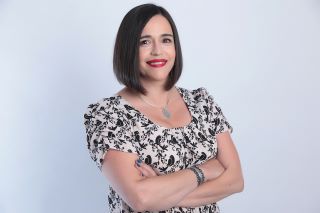
Katherine Stannett is an author and editor based in the UK. She has taught English to a wide variety of students in many different settings and is the co-author of several successful secondary series for Pearson, Macmillan and National Geographic Learning as well as raps, songs and magazine articles. She gives plenaries and workshops around the world and also conducts webinars from her home office in the UK. Kath is passionate about using real-world materials to help children develop their social and emotional skills and global competence within a supportive and holistic framework.
It can be difficult to know when it's OK to reproduce text, images and other materials from third-party sources. What can you use and how much should you change it?
In this session we looked at how you can approach these questions and the underlying copyright principles, with an emphasis on UK-based publishers.
- What is (and isn’t) protected by copyright
- When can you rely on ‘fair dealing’ and what are the risks (also touching on US ‘fair use’)
- Adaptations – do they need permission?
- Are the materials you find online themselves breaching copyright?
- Using quotations, adapted texts, poetry and lyrics
- Using images and photographs
- Linking to platforms such as YouTube
- Clearing permissions and making the process easier
- Some common pitfalls and copyright myths
Clare Painter

Clare is a rights consultant specialising in digital rights and the use of digital materials. She holds a Masters in UK, EU and US Copyright Law from King's College London, completed during lockdown in 2020. She and her freelance team hold ongoing permissions roles with Oxford University Press, leading Swiss business school, IMD (e-learning), and an ELT publisher focussed on the Chinese market. Clare also runs Clare Painter Associates, a Digital Licensing Agency that helps publishers to license content in institutional markets. Previously she was Rights Director at digital pioneer Helicon Publishing.
Following on from Avallain’s two very successful previous CPD sessions that focussed on ELT materials, in this session we looked at how Avallain Author can be used to create a variety of content for a range of educational settings. Avallain also touched on the European Accessibility Act (EAA) and its implications for accessibility in everything they do digitally. There was a specific focus on:
- interactive ebooks
- one-page learning units (new scrollable lesson formats)
- creative video-based lessons
- realia templates (eg creating a newspaper article)
- maths / science notation (eg algebra, formulae)
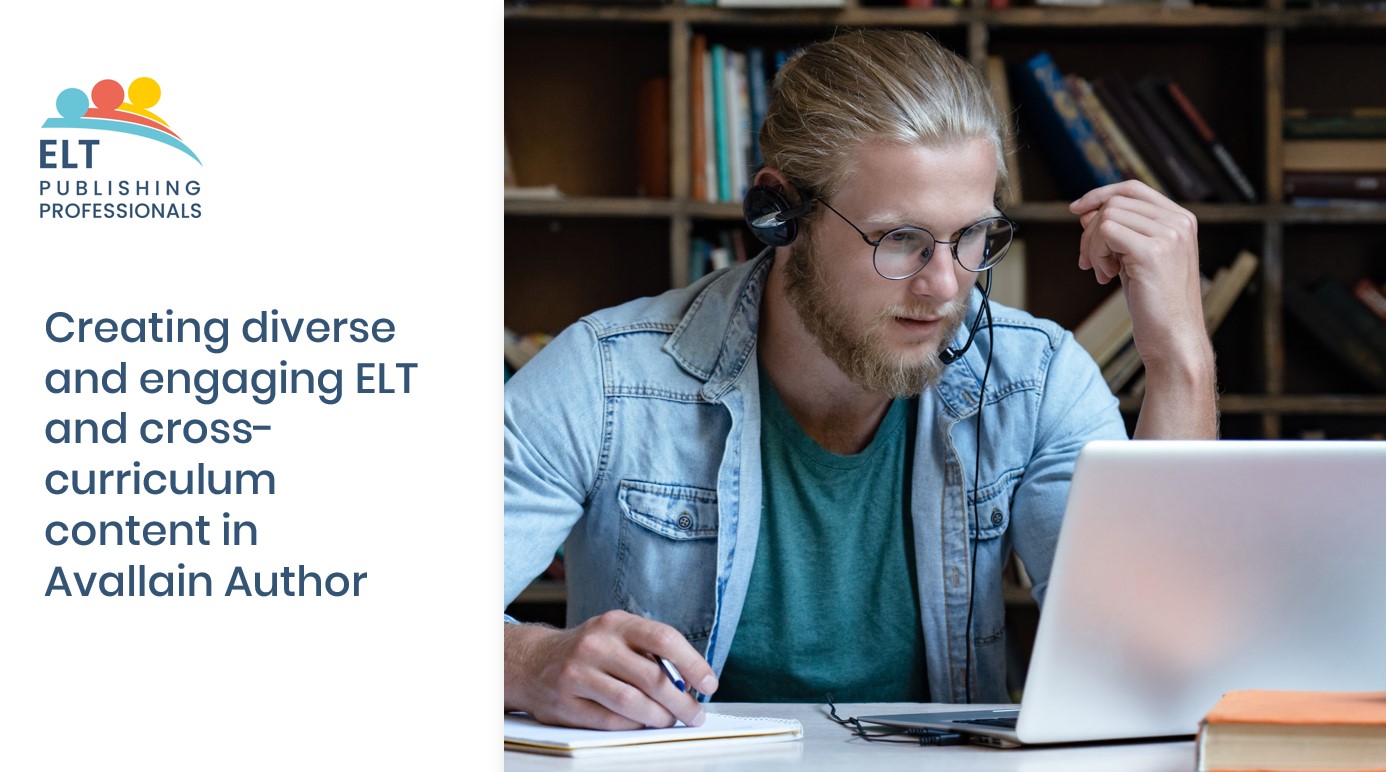
Nadine Hartley
Nadine Hartley studied English/American Literature and Linguistics at the Humboldt University in Berlin before moving to the UK, where she began her career in publishing. For several years she has been Head of Product Documentation and Training at Avallain AG. Together with her team she supports Avallain’s clients in their content production processes and offers regular trainings and webinars to Author users. In her spare time, she likes doing yoga, reading and taking her dog for long walks.
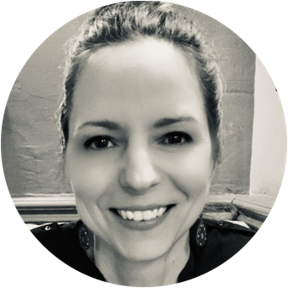
In this panel session, we asked ELT and Educational freelancers a number of questions designed to identify the crossover opportunities for ELT and Educational freelance editors and writers. We crowdsourced questions ahead of the event and focused on these key questions to kick off the session: Have you ever wondered whether you need specific subject knowledge to copy edit/proof read in Educational publishing? Or whether the development process and schedules in Educational publishing are the same as in ELT?
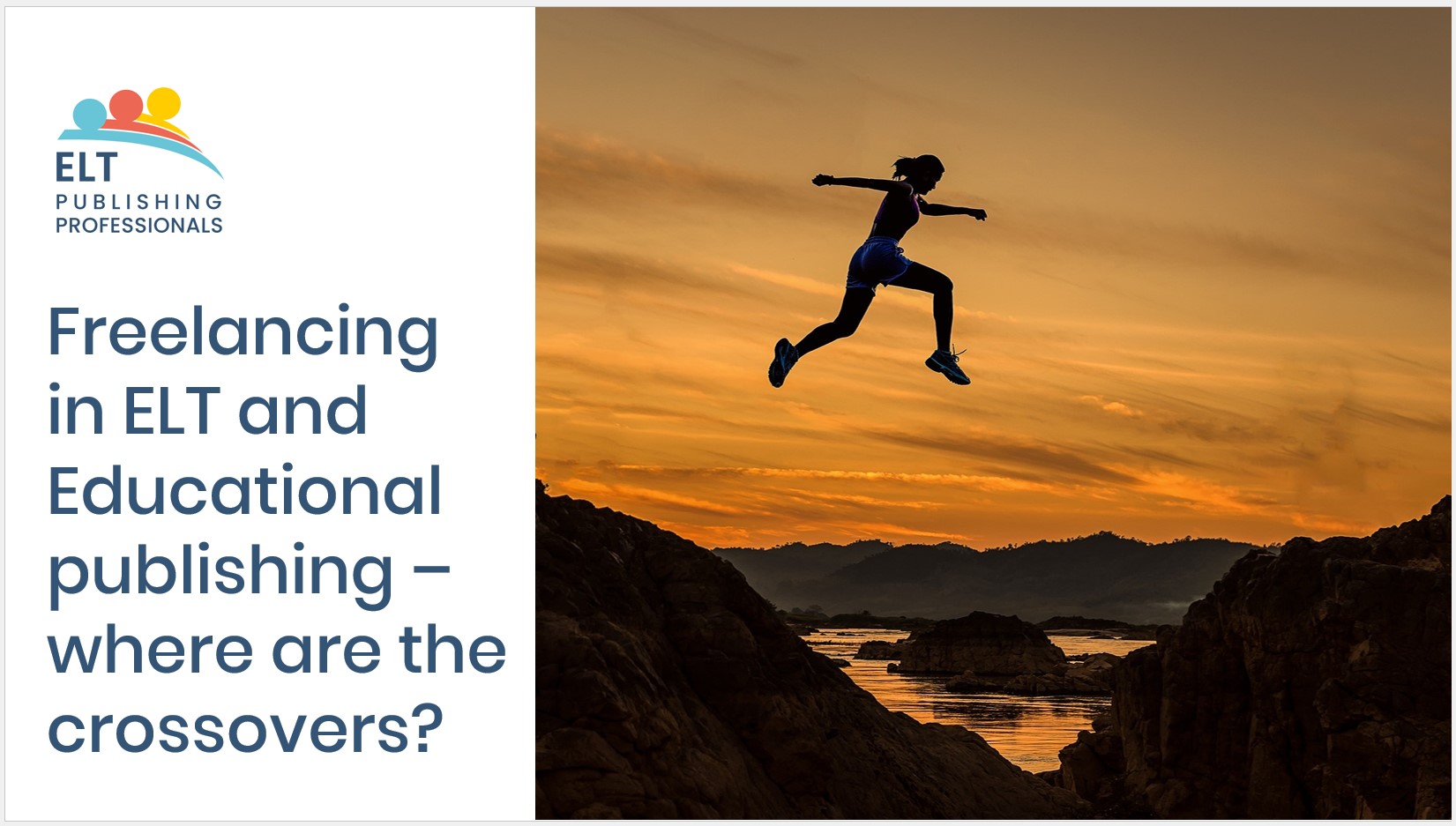
Panellists
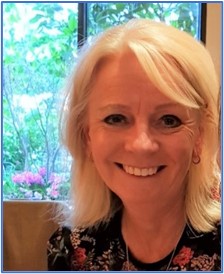
Gill Budgell is the director of Frattempo Ltd, which is an education consultancy business specialising in EdTech and publishing services. She has over 30 years’ experience of education as a teacher, publisher, researcher and writer of early years and primary English language resources. Before establishing Frattempo, Gill was an in-house English/Language Arts primary publisher for 14 years. She has developed, written and published many outstanding and award-winning print and digital language and literacy resources with publishing partners, and is RSA qualified in supporting the needs of bilingual pupils.

Rebecca Durose-Croft is Managing Director of Westchester Education, UK and International. As well as being responsible for the production of STEM, literacy and projects at Westchester Education, she also oversees all ELT and Bilingual Education projects. Rebecca is a CELTA-qualified English Language Teacher and has worked as an in-house ELT editor at Oxford University Press. Rebecca brings a wealth of experience in educational publishing, having previously worked in Editorial and Management roles for Pearson Education, Cambridge University Press, and Marshall Cavendish. Rebecca has worked across print, digital, and online platforms and has extensive knowledge of UK and international curricula.
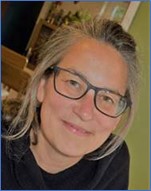
Catherine Ball is an ELT professional with nearly 30 years’ experience teaching, editing and writing. She spent many fulfilling years teaching – from refugees in her native Canada to teenagers in Eritrea with VSO to children in Portugal with The British Council. Settling in the UK, she began her publishing career at OUP in Primary ELT and after 8 years of learning the tricks of the trade, left her Senior Editor role for a diverse and rewarding freelance career. She loves the joy of writing for pre-primary courses and is happiest when drawing visuals of kooky koalas to accompany her manuscripts.
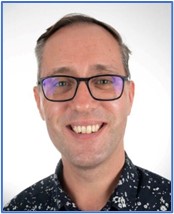
Derek Philip-Xu is originally from Aberdeen but in 2003 he decided to take a year out and teach English in Japan. He ended up staying for five years before moving on to Spain and then China. Twenty years later, he is still involved in ELT. An opportunity in China saw him move into publishing, dealing with both print and digital content. On his return to the UK in 2016, he worked with one of the large publishers, but a couple of years ago decided to go freelance and set up his own company, Refreshing Publishing, specialising in publishing project management and digital content development.
As writers, editors and publishers we're constrained by market demands to fulfil a broad range of educational needs, from covering the topics to exam preparation. However, in an emergency such as the climate emergency, shouldn’t everything we do be geared towards ending that emergency? Is there a way to make sure more of our materials contribute to the fight against climate change and biodiversity loss, not just that unit on The Environment? In this session we explored what that might look like.

Daniel Barber is a teacher, trainer and writer based in Cádiz, Spain. He has taught for 28 years, in Mexico, the UK and Spain. He writes for several publishers, most recently National Geographic Learning on their Voices course. His spare time is often taken up learning about the natural world, especially birds. It’s this interest, and concern with the consequences of our modern globalised society that has directed his thoughts regarding climate breakdown and the biodiversity crisis and our profession's place in it. In May 2019 he helped found ELTfootprint and has been involved in it since.
In CLIL teaching, subject content is the protagonist and language is the vehicle. As a result, language driven by the needs of the subject content, and taught and learned implicitly. As ELT writers and editors with a language curriculum to follow, how can we create materials that help us to join the dots between CLIL and language teaching in the English classroom? In this practical session we looked at creating CLIL materials for the English classroom and how ELT and CLIL materials differ so that we can begin to think about how we can create materials to bridge the gap between them.
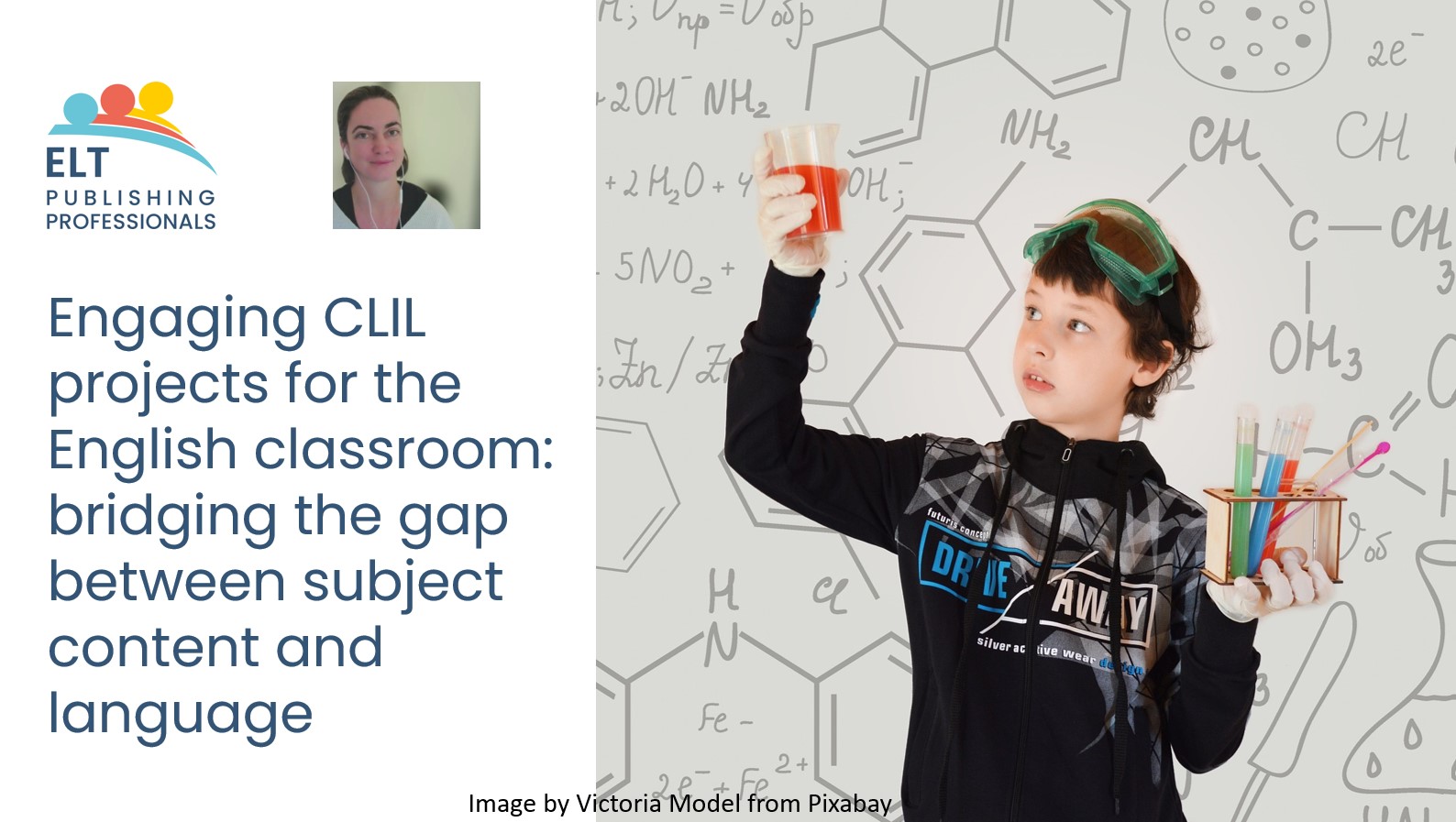
The climate crisis is the biggest single challenge of our generation and without collective action we risk crossing planetary boundaries of no return. Far from fear-mongering we need to build awareness on the consequences of collective actions and how we can all help avert the crisis. Why the ELT materials? Why not? English will undoubtedly be the language the world uses to unite to solve this problem, it is the language of the UN Sustainability Development Goals and as ELT publishers we have a role in not only presenting the relevant language but also using our platform to raise awareness.
This practical workshop aimed to give participants the tools to appreciate, understand and implement sustainability in our materials.
Presenter
Charlotte Ellis
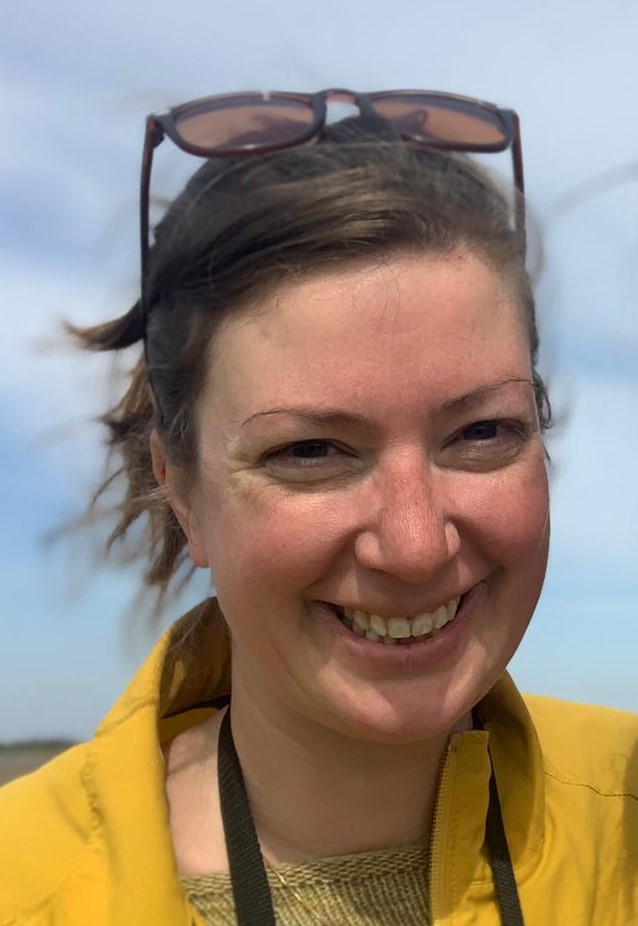
Charlotte studied Modern Languages (French and Modern Greek) at Oxford University and has long had a passion for sharing cultures and using languages to cross borders. Most recently her attention has turned to how we can use language and education to try to solve some of the biggest questions our generation has to face – that of climate crisis and sustainable living. Charlotte has recently studied with the Cambridge Institute of Sustainable Leadership and is co-lead of the Cengage Green Employee Research Group alongside her role as Head of Strategic Marketing at National Geographic Learning.
In this session, we will be thinking about explanations and rules about English grammar for learners of EFL. We will take a short trip through time, discussing how grammatical explanations for EFL emerged at the beginning of the 20th century, and will explore how they've changed over time. Using examples from a number of contemporary practice grammars, we will try to establish what makes a good pedagogical grammar explanation but will also consider the difficulties involved and the compromises that sometimes have to be made.
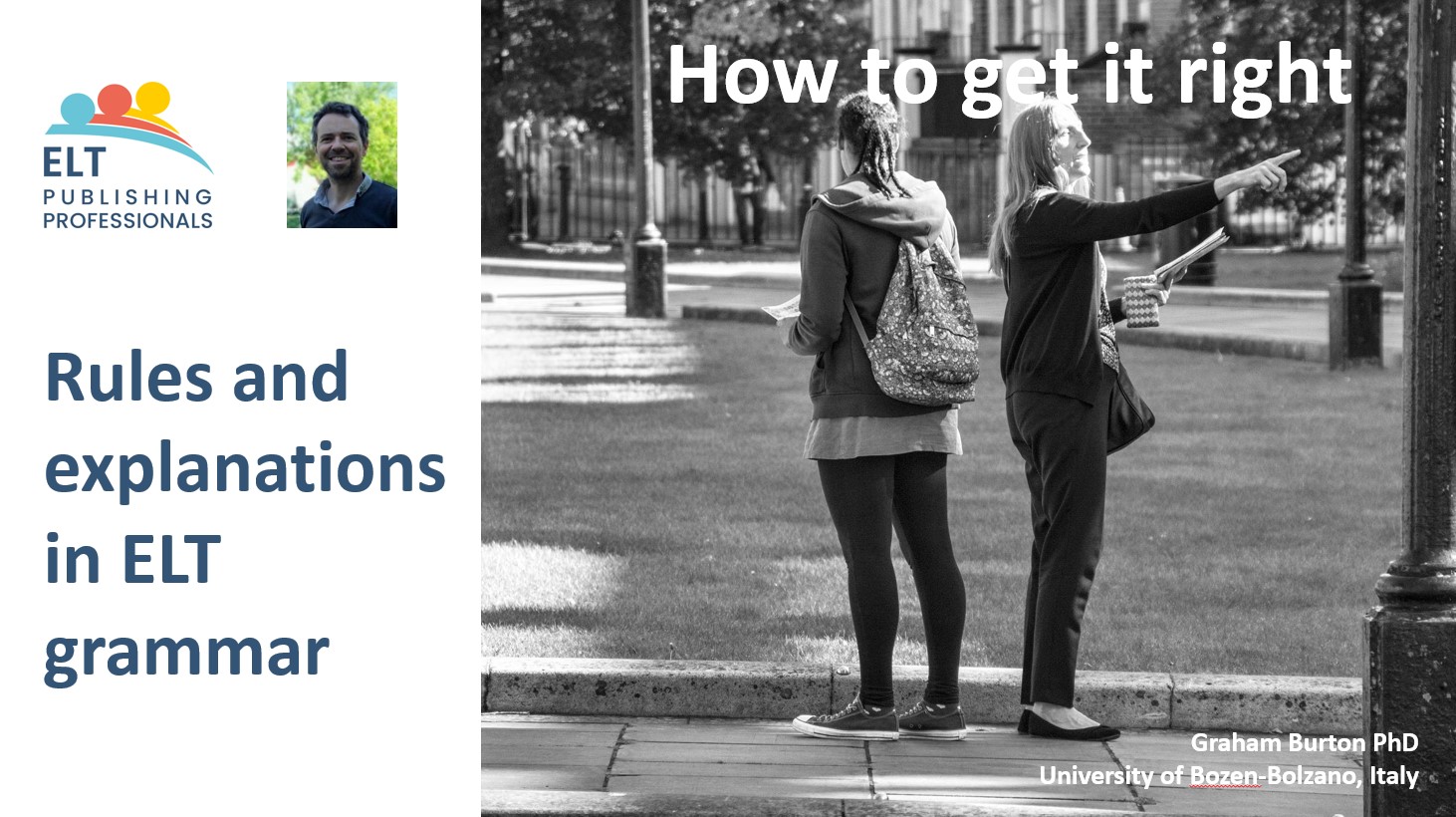
Graham Burton is a researcher at the Free University of Bozen-Bolzano, Italy and has been involved in ELT for over 20 years. He has an MA and a PhD in Applied Linguistics, the latter focussing on the history and accuracy of pedagogical grammar explanations for EFL. He has worked as both an editor and author and has written materials for a number of publishers, including Cambridge University Press, Richmond ELT, HarperCollins, Oxford University Press, Macmillan, Pearson and Cengage / National Geographic. Some recent publications include Personal Best B1+ Student's Book (Richmond), Cambridge English Empower B1 Student's book (CUP, as co-author), and Collins Academic Skills Series: Presenting (HarperCollins), part of the ELTon award winning Collins Academic Skills series.
Exams should perhaps join death and taxes on Franklin’s short list of life’s certainties; and the world of ELT plays its part in this. As well as there now being a huge variety of certified proficiency, level and placement tests, course books routinely include revision tests and other assessments of progress. Increasingly, ELT writers and editors are called on to produce test items – but how do the skills and expertise needed for item writing differ from those required for materials writing?
In this one-hour session, LT123 will introduce some of the key principles that guide item writing, considering the fundamental question: How do you make a fair test? We’ll explore practical examples of a range of test items across different language skills, looking at what makes a good, and a not-so-good, test item. We’ll also highlight the key skills that item writers need, to give you a taste of the intricacies of item writing and editing.
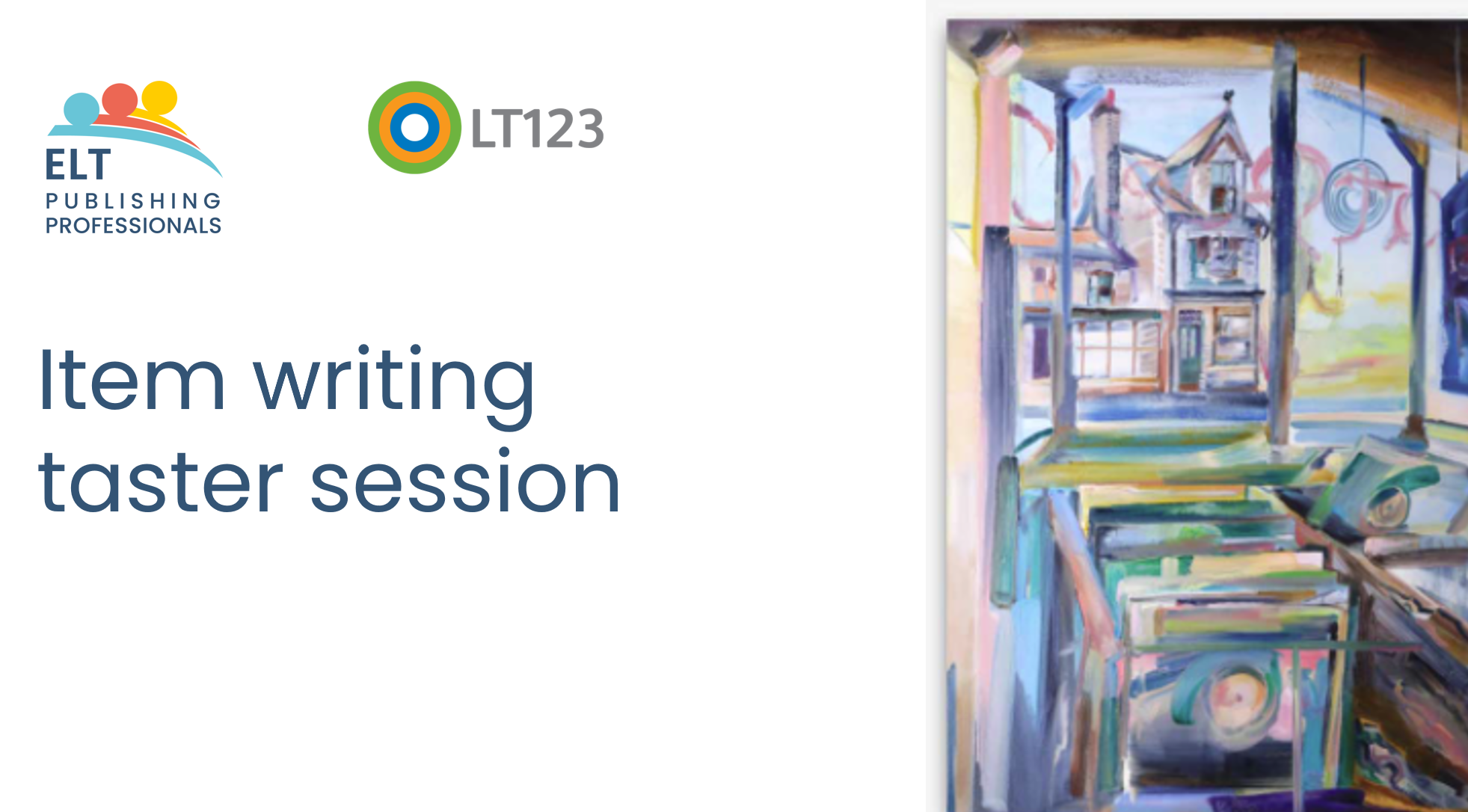
LT123 is a highly experienced and expert consultancy specialising in English language assessment, learning and training materials. It has been supplying assessment content to education ministries, major publishers and exam providers for over ten years.
Felicity O’Dell has been involved in item writing for a number of years and for various assessment organisations, including academic and younger learners. She has published many books for language learners, focusing particularly on vocabulary development and exam skills.
Frances Treloar has extensive practical experience of creating test content for a range of purposes and assessment organisations. She has a very sharp eye for writing and editing assessment design and content, and is skilled in training and leading item writing teams.
In 2015, after working in ELT for more than forty years, Ken Wilson enrolled on a Creative Writing MA course at Birkbeck College London, and subsequently published his first novel in 2021. In this talk, he will outline the main challenges faced by new writers of fiction, but also the advantages of coming from a background of writing for an ELT market, not least the fact that you've already had experience of the editorial process and, more important, you've had to deal with editors who may or may not be on the same wavelength as you. Ken will talk about the value or otherwise of doing Creative Writing courses, plus some thoughts on other useful professional development avenues, such as the writing workshops organised by the Guardian newspaper. Finally, some dos and don'ts about the exhausting search for an agent and a publisher.
Ken has written more than thirty ELT titles, including more than a dozen series of course books. His most successful course material is Smart Choice, an OUP American English course for young adults, first published in 2007. The fourth edition of Smart Choice was published in 2020.
Ken was one of the team of authors who wrote New Standard English, a course for China which takes learners from primary to college level, which was co-published by Macmillan UK and Foreign Language Teaching and Research Press, Beijing. He is also Editor-in-Chief of a primary series co-published by Macmillan China and VEPH Vietnam.
His first ELT publication was a collection of songs called Mister Monday, which was released when he was 23, making him at the time the youngest-ever published ELT author. Since then, he has written and recorded more than 250 language teaching songs, published as albums or as integral parts of course material.
For many years, Ken was artistic director of the English Teaching Theatre, a company which toured the world performing stage-shows to learners of English. The ETT made more than 250 tours to 55 countries in Europe, Latin America, Africa, the Middle East and Asia.
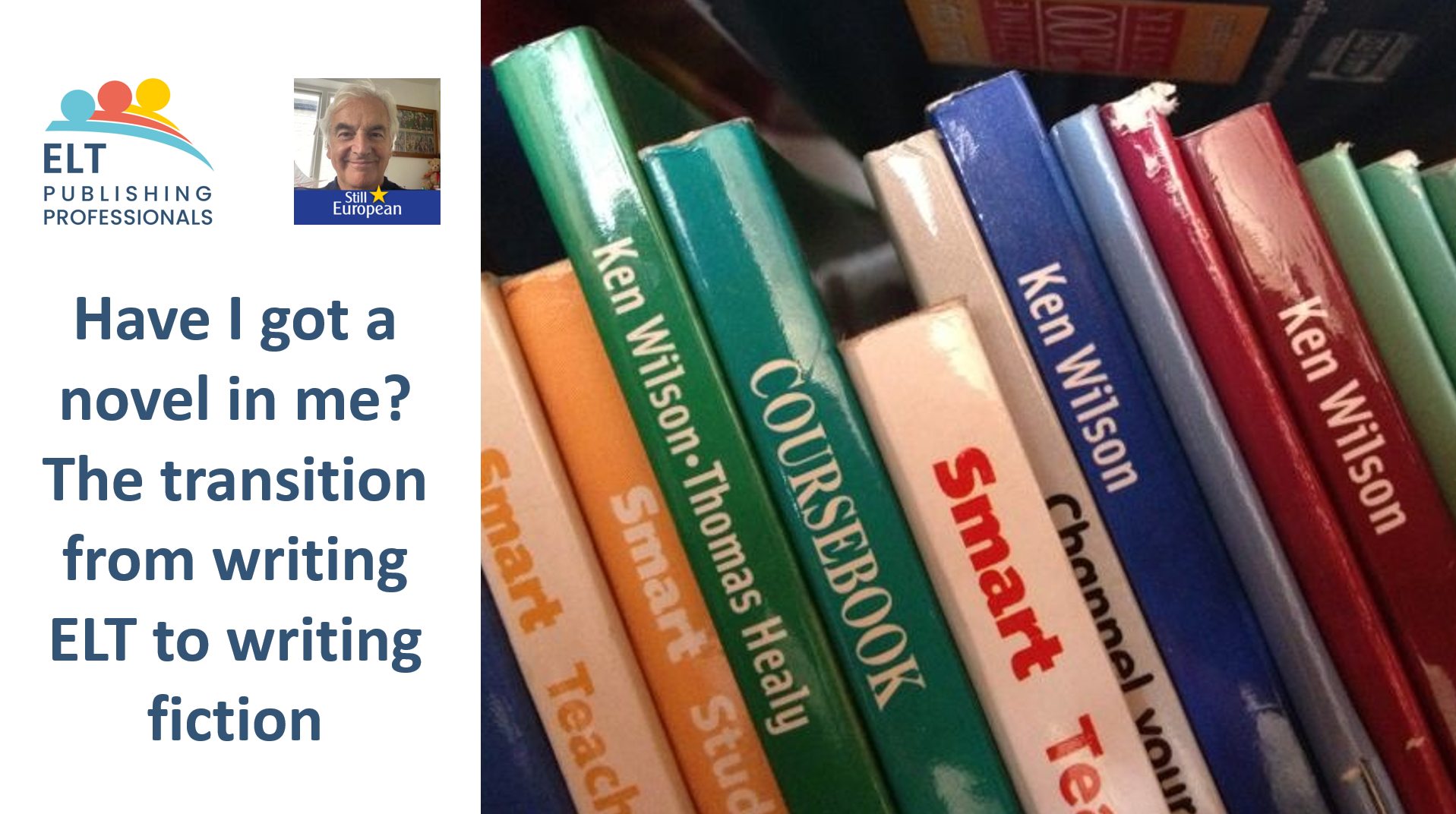
Whatever your role in publishing, if your work involves commenting on PDF page proofs, then using the available tools effectively will ensure clear communication of your changes, increase your efficiency and save you time.
On-screen PDF mark-up is one of the most common methods of making corrections to laid-out page proofs, but there can still be confusion around what tools and functions are available when marking up in this way, and what best practice looks like.
In this hour-long session Denise will explain her top tips for working with the free version of Adobe Reader DC, the industry standard software for checking page proofs. Everything that you need to do when marking up a PDF is available to you in the free software – no need for expensive licences for functionality that you won’t use.
Denise is a freelance copyeditor and proofreader who works with many different publishers on ELT materials. She teaches proofreading and marketing for Publishing Scotland and the Chartered Institute of Editing and Proofreading (CIEP) and has been marketing director of the CIEP since 2017.

Packagers and vendors have been part of publishing for decades, but recently we’ve seen them playing a more significant role. As a writer or editor, you may now find yourself being asked to work directly with a vendor/packager rather than with the publisher and on most projects you are likely to be commissioned by them. In this highly interactive webinar, we’ll discuss in depth why this change is happening, and importantly, how you can best engage as a publishing professional.
We’ll explore the following areas, and for each section, we’ll hear what vendors and packagers have to say, as well as taking questions from the audience:
- The roles and relationships in the publishing ecosystem between publishing houses, packagers and vendors, technology providers and freelancers; visions for the future
- The ELT workflow between publisher and packager/vendor; how the role of the freelancer fits in
- How to engage with packagers and vendors; how to make the relationship work for you.
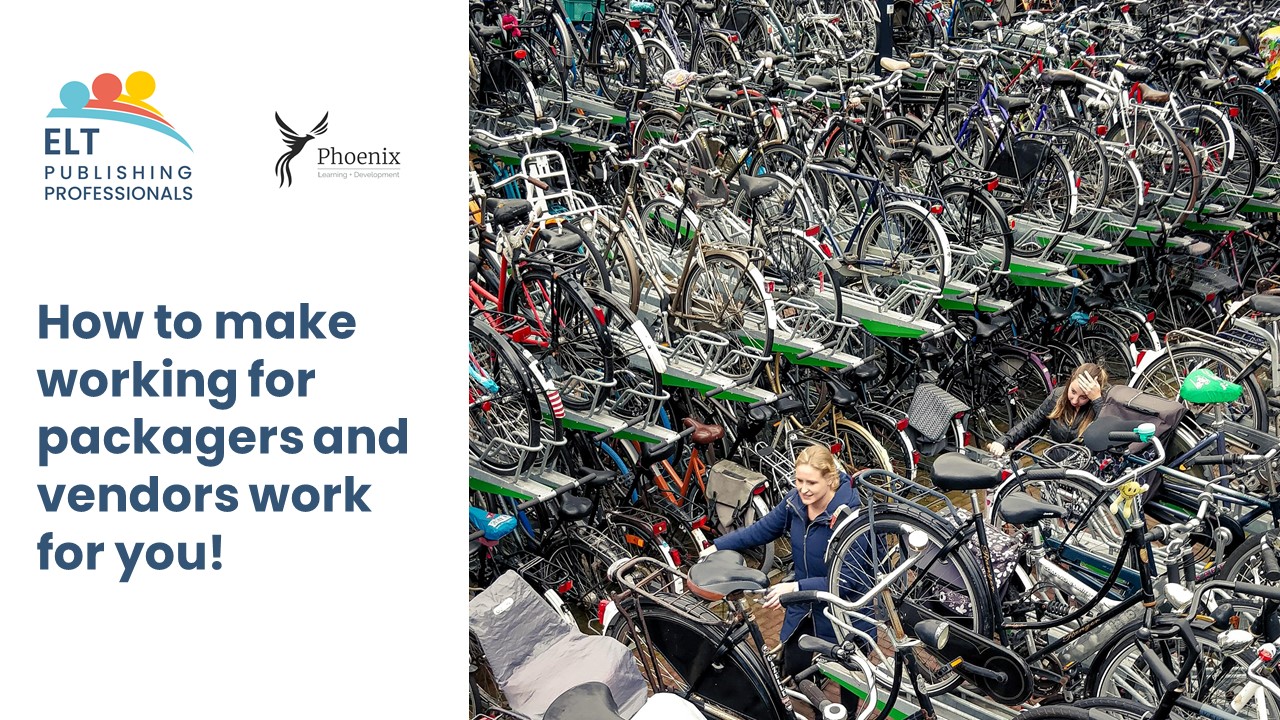
Following our very successful webinar last year, Avallain and ELTpp are teaming up again to look in more depth at the online authoring tool, Avallain Author. With the proliferation of digital learning, Avallain Author is an essential tool for ELT publishing, used by almost all the major ELT publishers to prepare their digital content. The webinar will give a quick recap of the basics, then demo some more advanced functionality and templates, and also tell you about an exciting opportunity to become a trained and certified Author Professional, ensuring your currency and competitiveness as a freelance ELT editor or author.
Avallain will also be telling us about Avallain Magnet, their new all-in-one authoring and learning management suite for institutions and companies, which will open up new opportunities for digital learning, authoring and editorial services. The Avallain team will be joined by one of the first language training clients for Avallain Magnet, to give you direct insight into how this exciting new solution works in frontline language learning.

Does video sometimes feel like a foreign language? As the video element of ELT courses becomes more important, a working knowledge of its grammar and vocabulary is vital for authors, editors and anyone involved in course creation. This session aims to demystify and entertain while providing a survival guide to the basics of video. We aim to understand what video can and can’t do in the context of learning English. We will learn from some great movie clips so the session should be fun and as interactive as possible.
Adam Salkeld and Stephen Haggard were producers in BBC documentary and current affairs TV before they founded the award winning ELT video company DLA. We will allow plenty of time for participants to ask questions and to discuss the issues that video raises in the ELT publishing world. Come prepared.
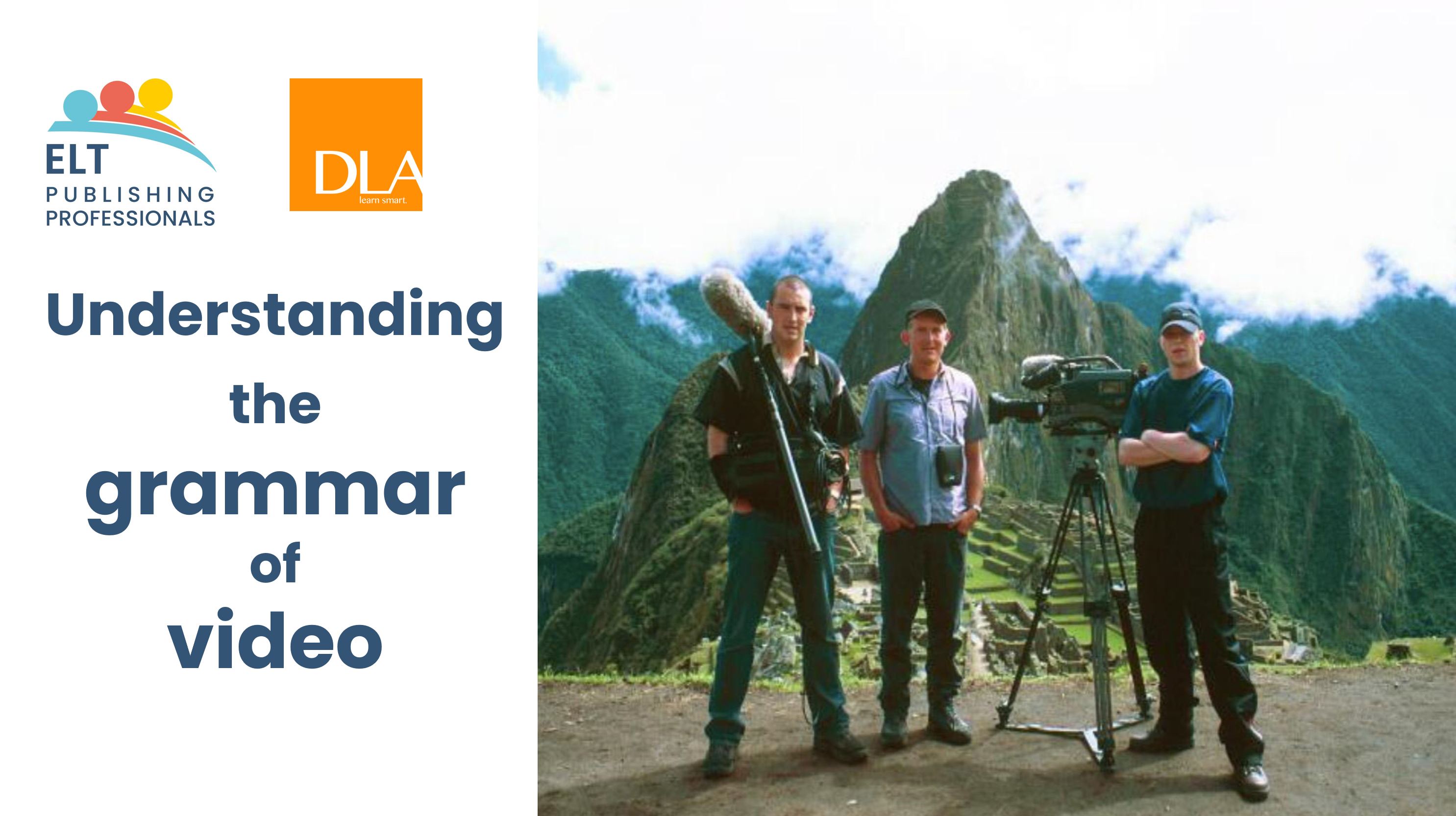
The Global Scale of English (GSE) is an extension of the CEFR for English, with hundreds more Can Do statements to address the needs of a wider range of learners. Critical to the project has been the development of tools and resources to support teachers and ELT authors in implementing the GSE (and the CEFR) in their day-to-day work. In this presentation, Mike Mayor explored why the GSE was created and looked at the resources that are freely available to support content creation.
On March 8 2021, Andy Bird, the new CEO, flagged the GSE as central to Pearson’s future English strategy for both the institutional and direct-to-consumer markets. This session also introduced Pearson’s first direct-to-learner service – English.com – and outlined opportunities for freelance authors to get involved.
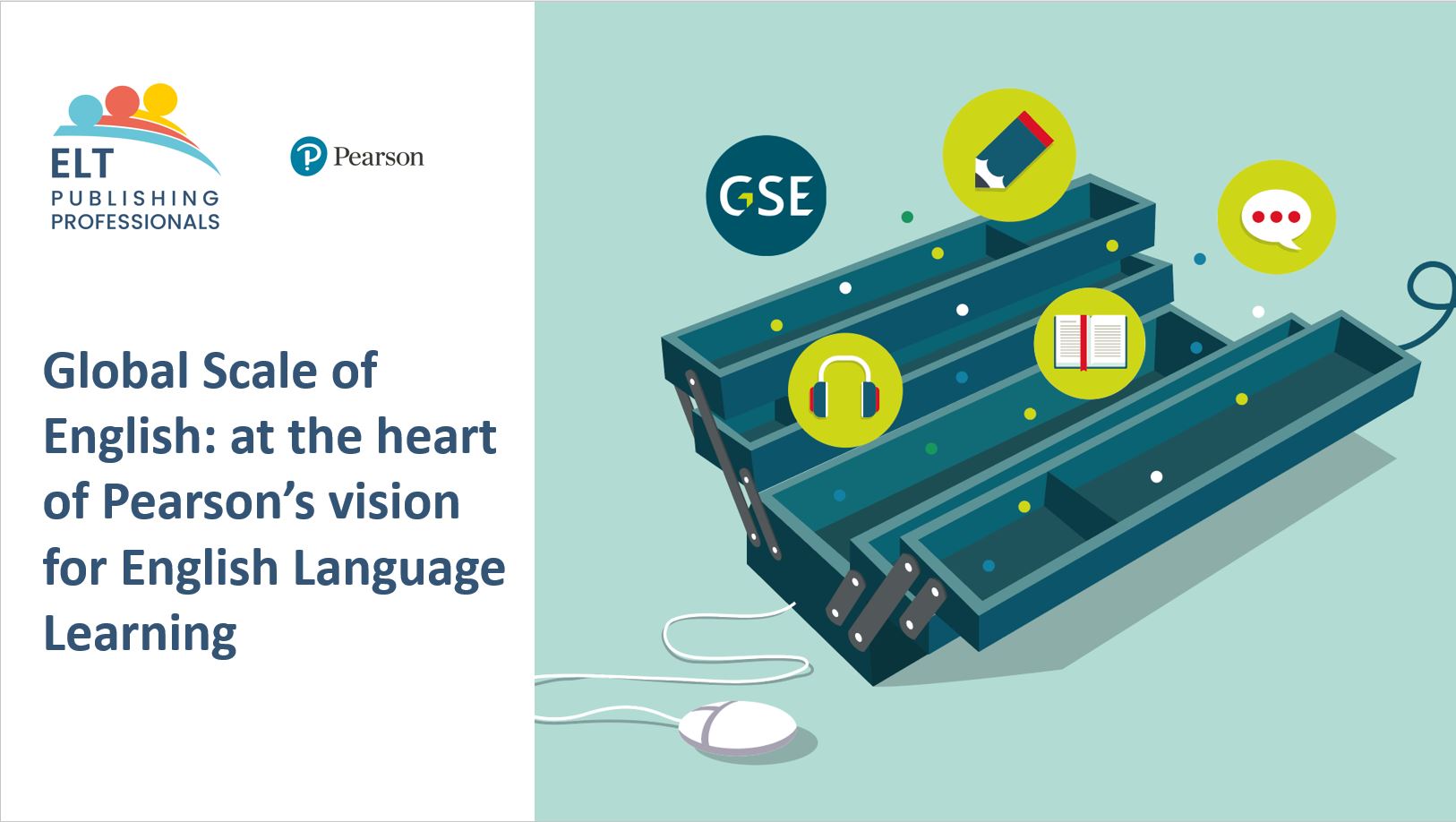
Online learning isn’t just a case of moving content from one format to another, or turning a live class or workshop into videos or a series of presentation and practice activities. For us it requires proper consideration of learning principles, the learner and the affordances of the technology being used.
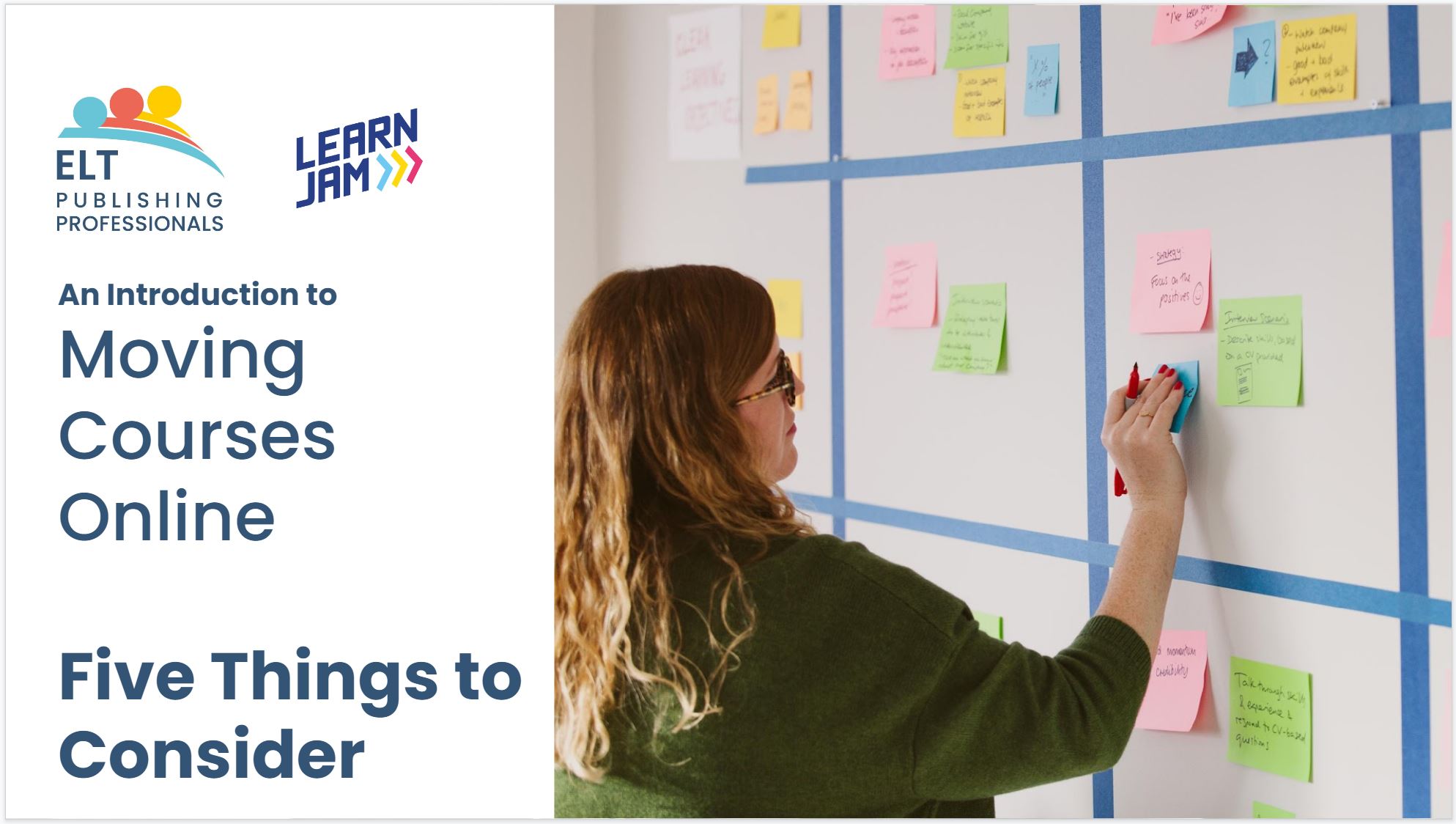
In this session we will:
- Give an overview of our methodology for moving in-person / offline content to an online learning platform.
- Share tips on how to work successfully on an online project, including questions to ask, things to watch out for and tools to use.
How can we, as publishing professionals, become more inclusive in the way that we work? With a focus on racial and ethnic inclusivity, this webinar will provide an introduction to evaluating your own mindset, the context for racist practices within publishing, and steps that you can take to challenge and rectify those behaviours.
Agenda
- The terms diversity and inclusion – what do they mean? (referencing the harm created by exclusion/marginalisation)
- Marginalised groups (and under-representation as a symptom of marginalisation) – historical context, link to privilege
- Privilege
- Intersectionality (inc. context and founder of this term)
- Tokenism and identity flattening
- Equality vs Equity
- Focus on racial and ethnic diversity
- Terms e.g. BIPOC and BAME – context and usage
- Racism – overt and covert – how our world and culture are organised
- Legacy of colonialism on British/ELT publishing – how that affects our publishing practices today (e.g. cultural appropriation, erasure – with examples of text and artwork)
- What can we do? Practical steps to thinking inclusively as a publishing professional.
- PRH UK and Ladybird Education initiatives
- Understanding and acknowledging our own privilege
- Educating ourselves
- Committing to thorough research when required
- When checking material – text/artwork – what to keep in mind
- Further reading/learning suggestions
Speakers
Chimaoge Itabor is currently studying a postgraduate degree in Law. They have been a legal volunteer for the Free Representation Unit, and have worked with charities such as Hestia and Refuge as a domestic violence support worker. Chima is a writer and poet, and has hosted panel events with groups such as BlkSisterhd on abolitionism. They are passionate about community organising, writing, and increasing awareness around white supremacy, colonialism, transphobia and patriarchy.
Kate Heald is Publisher at Ladybird Education, part of Penguin Random House UK. Ladybird Education publishes ELT graded readers for children, teens and adults, as well as home-learning material for first language markets. Penguin Random House UK is committed to making publishing a diverse and inclusive industry, working with partner organisations and individuals, such as Chima, in order to do so. Kate has previously worked at Macmillan Education and Collins Learning.
As more and more teaching and learning goes online, the number of digital components included in ELT courseware is proliferating. Avallain Author is the go-to online authoring tool used by nearly all the major ELT publishers. It offers tools and software to create, maintain and publish interactive content and learning material, and is the world’s most flexible and powerful online authoring tool.
Avallain and ELT Publishing Professionals teamed up to bring an introduction to this authoring tool. This hour-long, live webinar was suitable for ELT/educational writers and editors. You can watch the full recording of the live webinar, including the Q&A session, here.
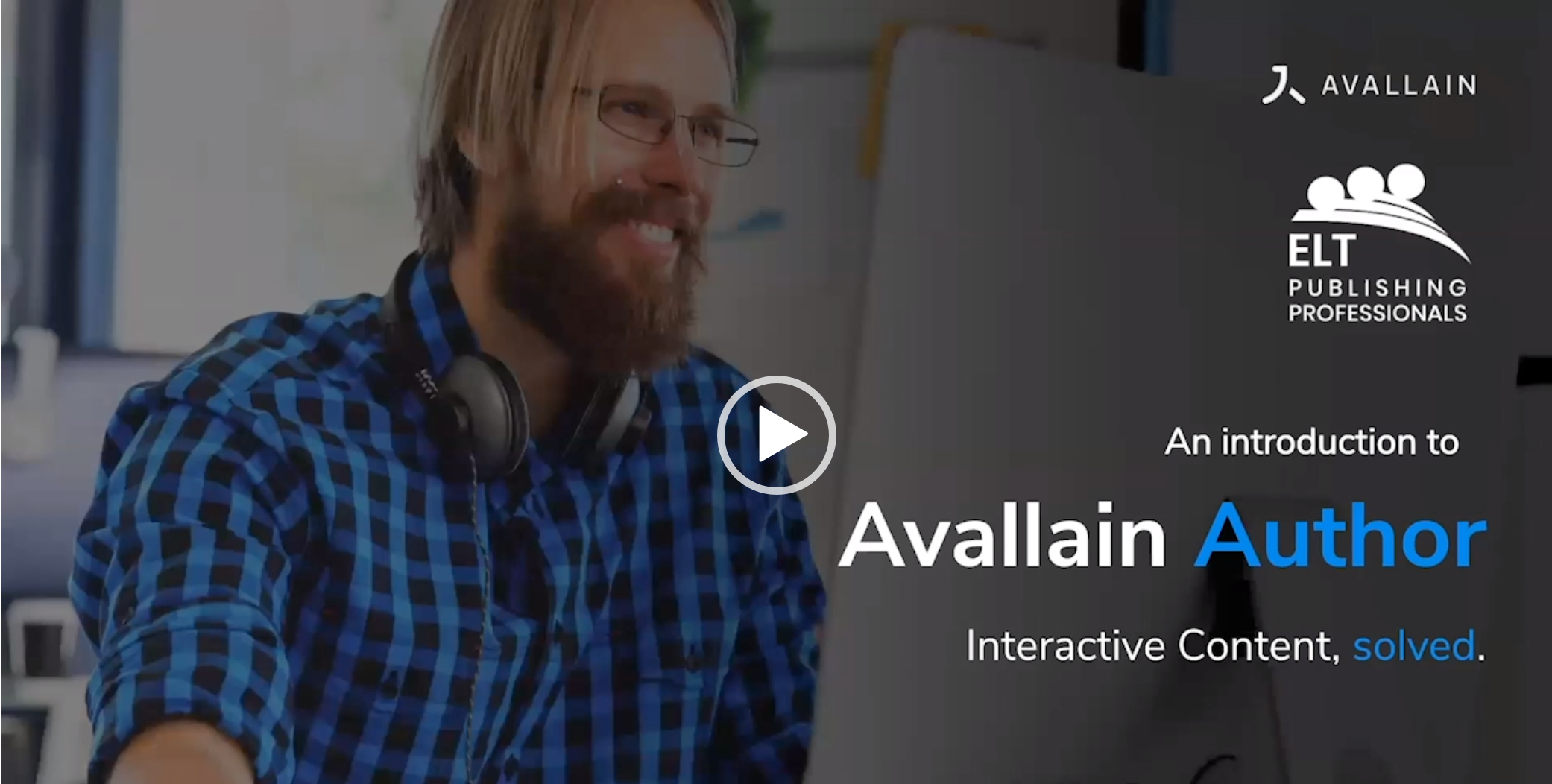
THE CONTINUING PROFESSIONAL DEVELOPMENT (CPD) LIVE EVENTS PROGRAMME
Freelance Publishing Professionals' live CPD online events take place every two months and are an opportunity for freelancers and in-house publishing staff to keep their skillset and knowledge up to the minute.
- The programme provides training on key issues of the day and the sessions are delivered by industry experts.
- The sessions are free for members of the Freelance Publishing Professionals directory and cost £20 for non members.
- Registration opens two weeks before each event and can be accessed from this page.
